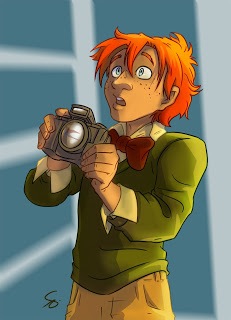“Just slow down and take a breath!” “Why don’t you just relax?” “Stop worrying about that.” These are a few of the phrases I had been told (repeatedly) while on my Crazy Speed Train to Burn Out City. And do you think these “encouraging words” calmed me and helped me to recenter? Heck no! In fact, what hearing these phrases would do is burn the hairs on the back of my neck and turn me into an enraged She-Hulk. “What do you mean ‘RELAX’??? Are you insane??? I don’t have time to relax! GRRRRR!!!!! Hulk smash!” Well, I think you get the picture.
I recently went on a family vacation back to the states. Before I left for our vacation, I would have told you that I’m a mess and everyone else is handling things so much better than I am. When I returned, I quickly caught on to the fact that everyone else is still doing exactly what I was doing…on the speed train to burn out and just plain super stressed. When you’re that stressed, you don’t see the light at the end of the tunnel because in your reasoning, there is no light. You can’t find your path out of the stress because you are too busy drowning in stress, you have been screaming and crying about it to realize you are probably only swimming in a foot of water if you would only stand up.
I took my vacation time. Yes, I really took vacation. I still checked my email to keep it from piling up so I wouldn’t miss anything really important, but I told my coworkers and subordinates that they should only contact me if something extremely serious happened that couldn’t wait until I returned and I put my out of office reply on. So, back to my vacation. In many ways, it was a typical vacation…a trip to an amusement park, visiting with family and friends…but I even did that better than ever. For the first time in my whole adult life, I determined that I was going to enjoy every single encounter I had with every person and savor every moment. I didn’t think about the next place to go or squeezing as many activities into my day. I just wanted to spend as much time with as many people as possible. It was fabulous.
I did something else during my vacation, something that changed me. I determined that I was going to take care of myself. My health had been adversely affected by all of the stress and I was becoming no good for anyone. Taking care of myself meant that this was going to have to be a crossroads where I had to start managing stress in a different way.
When the anxiety began to mount in preparation for my first day back to work, I talked myself out of it before I got too far in. (Yoga breathing is awesome.) I spoke truth to myself…”I’m going to have a great first day back”, “I can do this.” My first day back was a Saturday, of all days, but you know what? It was a great day. I saw some smiles and heard lots of welcome backs.
Today at work, I had such a great conversation with my boss. He has been the biggest source of my stress and anxiety. I think he unintentionally broke me the first week I was here and I have been stressed ever since. I was so stressed that I started to get paranoid that everyone was out to revel in seeing me fall on my face and I struggled not to give them the satisfaction, particularly my boss. But I had an honest conversation with him today. I told him how I had been feeling and the awful place all of the stress put me in. He smiled and assured me that none of that is based in reality. He encouraged me to learn as much as I can while I’m here and take advantage of the unique challenges of this duty location.
I can’t say that I have everything figured out now and that I flipped the switch and will now never be overrun by stress. But I can say that I am making a conscious effort to manage stress, be realistic, and take care of myself.








